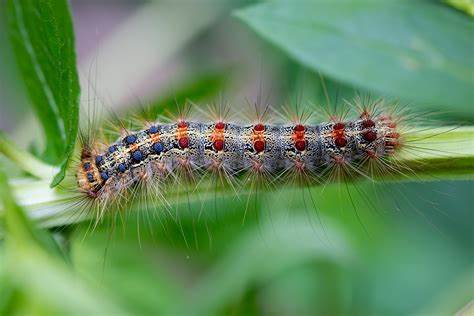Scientists rename insects due to resemblance of ‘racial slurs’

Scientists removed two insect names in an ongoing effort to replace names of bugs containing racial slurs and more “inclusive.”
“The Entomological Society of America has removed “gypsy moth” and “gypsy ant” as recognized common names for two insect species in its Common Names of Insects and Related Organisms List,” the ESA said in a press release.
RELATED: Library employs ‘rainbow dildo butt monkey’ to teach kids about reading
“The purpose of common names is to make communication easier between scientists and the public audiences they serve,” ESA President Michelle S. Smith, BCE, said. “Names that are unwelcoming to marginalized communities run directly counter to that goal. That’s why we’re working to ensure all ESA-approved insect common names meet our standards for diversity, equity, and inclusion.”
The term “gypsy” is “an ethnic slur to begin with that’s been rejected by the Romani people a long time ago,” Smith said. “Second, nobody wants to be associated with a harmful invasive pest.”
RELATED: Teacher’s union says it will investigate anti-Critical Race Theory organizations and reveal findings on social media
Lymantria dispar, formerly known as the “gypsy moth,” is a “serious pest of North American forests, with caterpillars that feed on more than 300 species of trees and shrubs,” according to the ESA. “This year, parts of the northeastern U.S. and eastern Canada are seeing some of the largest outbreaks in decades.”
“ESA will seek to convene a volunteer group to propose a new common name for L. dispar, which would then be made available for ESA member comment and subject to approval by the ESA Committee on Insect Common Names and the ESA Governing Board,” part of the press release stated.
RELATED: Illinois teacher sues district over anti-racist policies
The ESA has launched a new program, The Better Common Names Project, which will replace all “inappropriate” or “offensive” insect names from the Common Names of Insects and Related Organisms List. They also opened the list of names up for public comments to more easily identify offensive names that should be changed.